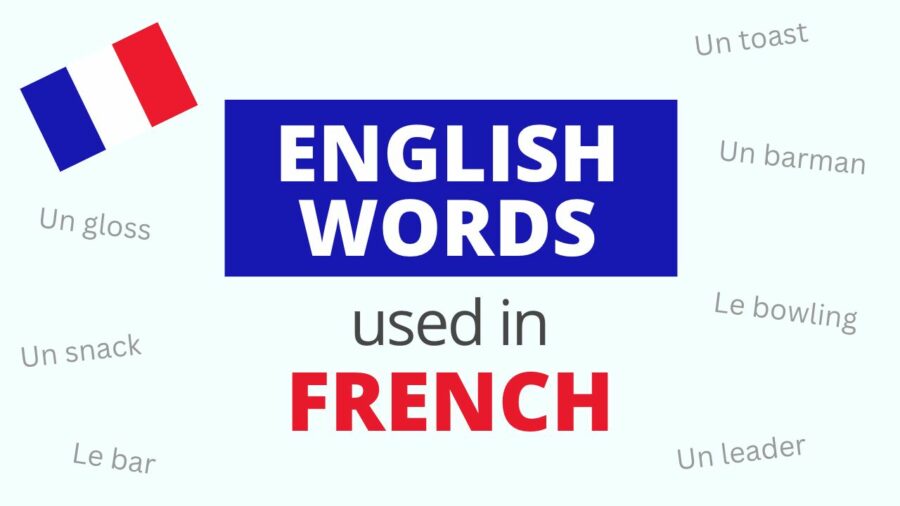
Menu
Close
Many French learners have a love-hate relationship with French reflexive verbs, or maybe just hate. Who knows, so today, we will talk about Regular French reflexive verbs. The ones with a regular conjugation. Even tho we are not going to talk about conjugation too much. We will do a quick review of what a French reflexive verb is, and then we will see the verbs with an example for each. I have a long list of French reflexive verbs for you today, so I hope you are ready.
Don’t forget your free PDF to keep and review at the bottom of the page. If you want to work on your French verbs and conjugation, my French Conjugation Course is an excellent resource for that.
A French reflexive verb is a verb indicating that the action is being performed on the subject. There are similar verbs in English, such as To cut oneself.
In French, a reflexive verb is called un verbe pronominal because it includes a pronoun (un pronom). The infinitive of a reflexive verb is always SE + verb, or S’ + verb if the verb starts with a vowel or a silent h. SE is the reflexive pronoun.
Regular verb: Couper – To cut
Il a coupé la feuille de papier avec les ciseaux.
He cut the sheet of paper with the scissors.
Reflexive verb: Se couper – To cut onesef
Il s’est coupé le doigt avec le couteau.
He cut his finger with the knife.
Many French reflexive and regular verbs have the same meaning, just that the reflexive verb refers to the person or the object. Some of them have very different meanings and can be incredibly confusing.
To conjugate a French reflexive verb, you are going to conjugate the verb like a regular verb and add the correct reflexive pronouns after the French subject pronoun.
The French pronouns are:
Subject pronouns | Reflexive pronouns |
Je Tu Il-Elle-On Nous Vous Ils-Elles | me – m’ te – t’ se – s’ nous vous se – s’ |
Remember that in the case of me, te and se, if the verb starts with a vowel or a silent h, we use m’, t’, s’.
Regular verb | Reflexive verb |
Couper – To cut | Se couper – To cut oneself |
Je coupe Tu coupes Il-Elle-On coupe Nous coupons Vous coupez Ils-Elles coupent | Je me coupe Tu te coupes Il-Elle-On se coupe Nous nous coupons Vous vous coupez Ils-Elles se coupent |
1. S’adapter – To adapt
Il doit s’adapter à son nouveau travail.
He must adapt to his new job.
2. S’adresser (à) – To address – To speak to
Elle s’adresse aux étudiants en anglais.
She addresses the students in English.
3. S’amuser – To have fun
On s’est bien amusés à la fête.
We had a lot of fun at the party.
4. S’apprêter (à) – To get ready (to)
Je m’apprête à partir en vacances.
I’m getting ready to go on vacation.
5. S’approcher (de) – To approach
Le chat s’approche doucement de la souris.
The cat is slowly approaching the mouse.
6. S’arrêter – To stop oneself
Je dois m’arrêter au magasin.
I need to stop at the store.
7. S’énerver – To get mad
S’énerver ne règlera pas le problène.
Getting mad won’t solve the problem.
8. S’entendre (avec) – To get along (with)
Ils s’entendent bien avec leurs voisins.
They get along well with their neighbors.
9. S’épiler – To pluck – To wax
Elle préfère s’épiler les sourcils elle-même.
She prefers to pluck her eyebrows herself.
10. S’excuser – To apologize
Je m’excuse pour le retard.
I apologize for the delay.
11. S’habiller – To get dressed
Je dois encore m’habiller.
I still need to get dressed.
12. S’habituer (à) – To get used to
Il a mis du temps à s’habituer à ses nouvelles lunettes.
It took him some time to get used to his new glasses.
13. S’imaginer – To imagine
J’aime m’imaginer en train de voyager dans le monde.
I like to imagine myself traveling the world.
14. S’intéresser (à) – To be interested in
Elle s’intéresse beaucoup à l’histoire du cinéma.
She is very interested in the history of cinema.
15. S’attendre – To expect
Je ne m’attendais pas à cela.
I didn’t expect that.
16. S’occuper (de) – To take care of
Il doit s’occuper de ses neveux ce week-end.
He has to take care of his nephews this weekend.
17. Se baigner – To go swimming
Elle ne veut pas se baigner.
She doesn’t want to go swimming.
18. Se brosser – To brush (one’s hair – one’s teeth)
Il se brosse les dents après chaque repas.
He brushes his teeth after every meal.
19. Se cacher – To hide
Les enfants aiment se cacher pour jouer.
Children like to hide and play.
21. Se doucher – To take a shower
Je me douche tous les matins après le sport.
I shower every morning after sports.
22. Se fâcher – To get angry
Elle s’est fâchée sans raison.
She got angry for no reason.
23. Se fatiguer – To get tired
Je me fatigue rapidement en hiver.
I get tired quickly in winter.
24. Se laver – To wash oneself
Il faut se laver les mains avant de manger.
You should wash your hands before eating.
25. Se limer (les ongles) – To file one’s nails
Elle se lime les ongles.
She files her nails.
26. Se maquiller – To put on makeup
Elle aime se maquiller tous les jours.
She likes to put on makeup every day.
27. Se marier – To get married
Ils se sont mariés l’été dernier.
They got married last summer.
28. Se moquer (de) – To make fun of
Ce n’est pas bien de se moquer des autres.
It’s not good to make fun of others.
29. Se moucher – To blow one’s nose
Je me mouche constamment depuis hier.
I’ve been blowing my nose constantly since yesterday.
30. Se passer – To happen
Je ne sais pas ce qu’il se passe.
I don’t know what’s happening.
31. Se peigner – To comb one’s hair
Il se peigne la barbe tous les matins.
He combs his beard every morning.
32. Se perdre – To get lost
Les randonneurs se sont perdus dans la forêt.
The hikers got lost in the forest.
33. Se raser – To shave
Il se rase une fois par semaine.
He shaves once a week.
34. Se regarder – To look at oneself
Le chien se regarde dans le miroir.
The dog is looking at itself in the mirror.
35. Se relaxer – To relax
J’aime me relaxer en écoutant de la musique.
I like to relax by listening to music.
36. Se rendre compte (de) – To realize
Il s’est rendu compte de son erreur après quelques heures.
He realized his mistake after a few hours.
37. Se reposer – To rest
Après une semaine bien remplie, elle a besoin de se reposer le week-end.
After a busy week, she needs to rest on the weekend.
38. Se réveiller – To wake up
J’essaye de me réveiller tôt le matin.
I try to wake up early in the morning.
39. Se soûler – To get drunk
Il ne faut pas se soûler pendant les fêtes.
You shouldn’t get drunk at parties.
40. Se terminer – To come to an end
Ce film se termine bien.
This movie has a good ending.
41. Se tromper – To make a mistake
Il s’est trompé de sortie sur l’autoroute.
He took the wrong exit on the highway.
Leave your email and get the Regular French Reflexive Verbs PDF in your mailbox.
If you prefer to watch a video lesson, you can watch this video.

4 Responses
This is one of the best French courses I have ever seen on YouTube. Thank you very much and I really appreciate what you are doing in terms of French learners all over the world. Sending hugs from Sri Lanka.
Thank you 🙂
You are amazing. Thank you so much for your time and effort you put into these lessons on YouTube. I will definitely be ordering all of the books. Again, thank you.
Thank you so much <3